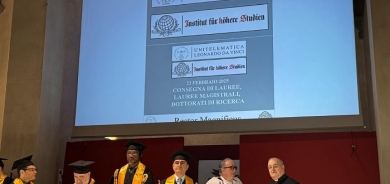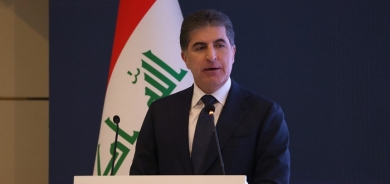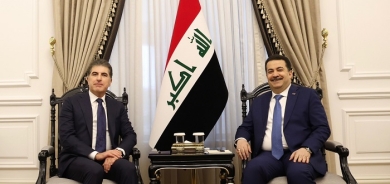How high is the risk of Putin using a nuclear weapon?

Moscow has repeatedly made threats that the war in Ukraine could escalate to a nuclear conflict. But is the Russian president really prepared to deploy nuclear weapons? DW spoke to a number of experts about the issue.
Since late September, Ukrainian troops have been conducting a successful counteroffensive in the regions of Kharkiv, Donetsk, Luhansk and Kherson. Russia's surprise setbacks on the battlefield have raised tensions in the Kremlin, and, even after Russian missile strikes on cities in Ukraine, there is growing global concern that Russia could resort to the use of nuclear weapons to strike back.
Citing NATO sources, the British daily The Times recently reported that Russia was preparing nuclear tests in the Black Sea. Furthermore, a video has appeared online that shows a Russian military train moving toward the Ukrainian border. It is allegedly linked to the 12th Main Directorate of the Russian Ministry of Defense, which is responsible for the country's nuclear arsenal.
Small steps toward escalation
Gerhard Mangott, a professor of international relations at the University of Innsbruck, said the danger of Russia deploying nuclear weapons was serious. He suggested that the military train and the fact that the Belgorod (K329) submarine had been mobilized could be nuclear messages.
"The Russian leadership is showing Ukraine and the governments of the West that Russia is quite capable, but also possibly willing, to use nuclear weapons," he said. "At the moment, this serves mainly as a deterrent. To signal that Ukraine should not continue its offensive and that the West should not continue supporting it with weapons."
However, he warned that if these threats failed to stop the Ukrainian counteroffensive, Russian President Vladimir Putin could move to the next stage.
"As a radicalized 'stop the offensive' message, Russia could test a tactical nuclear weapon over the Black Sea or in Kamchatka," he said.
Mangott added that if a blast over uninhabited territory did not help and Ukraine continued to retake territory, Russia could possibly use a tactical nuclear weapon: "That would not happen on the front line, but somewhere at the rear beyond inhabited Ukrainian urban territory."
If a Russian nuclear bomb over uninhabited territory failed to have a deterrent effect, military expert and former Bundeswehr Colonel Ralph Thiele believes that Moscow could try to attack political and economic targets in Ukraine.
"This might be an explosion that sends an electromagnetic pulse and breaks everything within an area of hundreds of square kilometers that is electrically powered — cars, televisions, satellites, computers, electricity plants," he said. "That could be an option."
US warns of catastrophic consequences
Most international experts agree that a nuclear weapons test would have devastating consequences for Russia. "Even a test, which would actually be a violation of the Comprehensive Test Ban Treaty ratified by Russia, would result in severe economic and financial sanctions," explained Mangott.
US national security adviser Jake Sullivan has already warned of "catastrophic consequences." In an interview with CBS in late September, he said that senior US officials had made this clear to the Kremlin "directly, privately, and at very high levels."
According to Mangott, the response of the US and NATO would likely have to be military. He referred to former CIA director David Petraeus, who told ABC News that the US could respond "by leading a NATO — a collective — effort that would take out every Russian conventional force that we can see and identify on the battlefield in Ukraine and also in Crimea and every ship in the Black Sea."
Mangott thought that such a strike would be "asymmetrical," in the sense that it would involve conventional weapons. "It is being communicated to Putin not only how the West would react to a nuclear strike but also that Russia would then be globally isolated, and China and India would also condemn such a step."
West should look to China for support
So far, China has adopted a neutral position regarding the Ukraine war. However, many experts agree that Beijing could help to deter Russia from launching a nuclear strike. Thiele thought that the West should do more to make China its strategic ally.
"Putin is dependent on China," he said. "By involving China more, the world would have a chance of getting a cease-fire, as a first step."
However, he said that the West should not compel China into joining the sanctions against Russia, as this would not be beneficial for Beijing. He explained that China was interested in ending the war in Ukraine, for economic reasons in particular, and did not want a nuclear conflict.
"Our politicians actually want to keep China out of Europe because they think it will be hard enough in future to deal with China, both in terms of the global economy and geopolitics. But I think that China's unpleasant, stronger presence here in Europe would be the lesser of two evils," Thiele said. This was a trump card, he said, that should be played.
Crimea could be red line
Mangott suggested that the current developments in Ukraine would ultimately decide whether the US warnings had a deterrent effect, adding that Crimea would possibly be the "red line" for the Russian president.
"I can't imagine him standing by if Ukraine regained Crimea. That would put his position in immediate jeopardy and bring about his downfall. The big question is whether Putin, in order to avert defeat, could be cold-blooded and possessed enough to go to the extreme of using a nuclear weapon in such a situation," he asked.
"I'm afraid Putin is cold-blooded and possessed enough," Mangott added. "But there is at least some residual hope that an order to deploy nuclear weapons would not be followed by those who had to implement it."
Mangott insisted that at present there were no signs that the Russian leadership had decided to use nuclear weapons.
"We are not there yet. Nor are we at the stage, at which Russia is in danger of catastrophically losing this war," he said. "But with every defeat it suffers on the battlefield, with each recapturing of Russian-conquered territory by the Ukrainian army, there is an increased probability of the situation going in that direction."
This article was originally written in Russian.
DW













